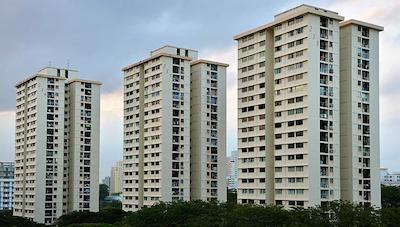-
Advocacy Theme
-
Tags
- Abortion
- Adoption
- Caregiving
- CEDAW
- Disability
- Domestic Violence
- Domestic Workers
- Harassment
- Healthcare
- Housing
- International/Regional Work
- Maintenance
- Media
- Migrant Spouses
- Migrant Workers
- Muslim Law
- National budget
- Parental Leave
- Parenthood
- Polygamy
- Population
- Race and religion
- Sexual Violence
- Sexuality Education
- Single Parents
- Social Support
- Sterilisation
- Women's Charter
Single parents need homes, too: Sam’s story
April 28th, 2017 | Family and Divorce, News, Your Stories

Single parents in Singapore grapple with a myriad of problems and restrictive rules when it comes to meeting a basic need – housing. Think this should change? Learn more at our upcoming dialogue session on housing access for single parent families. Read more about our recommendations for how policies should be more inclusive of single parent families.
Below is Sam’s story on his experiences with applying for housing.
___________
Sam* is a single father with shared custody and shared care and control of his two children, aged 7 and 9 years. His divorce was finalised in late 2012. The matrimonial flat was sold in 2013 and he received over one-third of the profits. He has been staying in his parents’ three-room flat since. On some days, his children come to stay with him – all three must stay in the same room, and he is starting to feel the space constraints.
Sam found the resale market to be too expensive and he wanted to live near to his parents. Thus, in 2015, Sam bidded for a BTO flat and got the selection around six months later. He paid $2,000 for the option fee and was given the floorplan. HDB later found out that he had shared care and control of his children and insisted that he needed his ex-spouse’s written consent in order to buy the flat.
Sam and his ex-spouse are not on speaking terms, having gone through a bitter divorce. He tried to email her to ask her to sign the consent form, but received no reply. He thought that anyone would find it hard to agree to the terms stated in the consent form, which required the signatory to waive potential access to subsidised HDB flats in the future. He was surprised that this requirement still applied beyond the original debarment period after sale of the flat.
When he explained to an HDB officer why it was near impossible to get his ex-wife’s signature, the reply he got was ‘this is your problem’.
He tried to seek help from his MP on this matter and went to the Meet-the-People session four times, but only managed to speak to his MP twice. Sam was not sure if his MP wrote an appeal letter to HDB.
In late 2016, his application was cancelled by HDB as he failed to get his ex-spouse’s consent. He received the refund for his option fee.
Sam then went to see a Minister, hoping that he would be able to appeal his case. He waited from 7.30pm to 10.45pm before he could see the Minister. The Minister agreed to try to get HDB to write a letter to his ex-spouse, seeking the consent signature. Sam did not see any copy of the communications between the Minister and HDB.
Sam also went to see another Minister for help – finally getting the chance to speak to him close to midnight – but was told ‘why are you here? You are not in my constituency’. The Minister agreed to help him. However, going to yet another MP also yielded no success in his appeal.
Despite the appeal letter from the first Minister, HDB ended up sending a letter to Sam saying that his appeal had failed due to his failure to get consent from his ex-spouse. He found this confusing and frustrating since he had understood that HDB would be asked to seek this consent.
Sam also spoke to a senior manager in HDB about his appeal but Sam felt that she did not seem clear on the policies herself. The most she offered was to speak to the legal team to see if Sam could apply for a flat with one child’s name (previously, his application was with both his children’s names), but did not explain why this approach would make any difference.
Sam feels that he does not have many options. He can only apply for a flat under the singles scheme, which will only be a two-room flat. However with his children growing up, he does not feel that there would be enough space for them in the available flats once they are a bit older, as they will still be spending the same amount of time living with him.
Sam suggests that the consent form for an ex-spouse to buy a subsidised flat be integrated into the divorce process, and form part of the negotiation over matrimonial assets by lawyers as part of that process.
*Pseudonym



